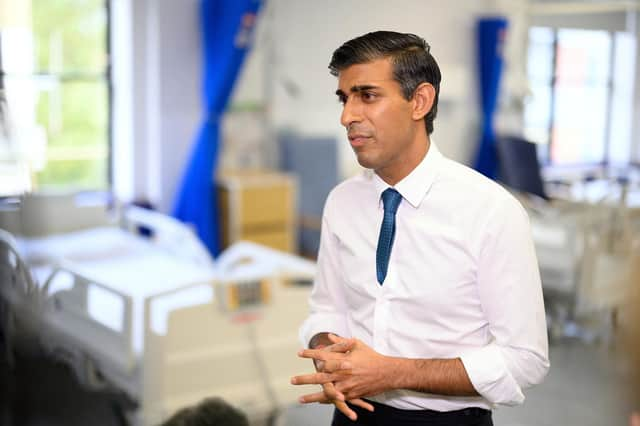Rishi Sunak's appointment shows progress we have made when it comes to tackling racism - Dr Alan Billings


I was a junior member of Leicester City Council in 1972 when we heard that General Amin was pursuing his policy of ‘Africanisation’. He believed that the Asian population of his country had monopolised the jobs and the wealth that ought to be for black Africans.
He gave them ninety days to leave the country. Many had British passports – a consequence of the Empire – but no one had envisaged that people who were so successful in Uganda and contributed so much to its economy would be forced to leave and seek to come here. To his credit, the Conservative Prime Minister, Edward Heath, admitted them, despite opposition from many in his party and the country. A devout Anglican, he saw it as his Christian duty.
Advertisement
Hide AdAdvertisement
Hide AdLeicester was one of the cities chosen to resettle them. But the council – Labour and Conservative – deeply opposed and tried to prevent it. Resolutions were passed saying there was no room in the city, no places in schools and no housing.
The council even went so far as placing adverts in Ugandan newspapers telling the Asians not to come to Leicester. Seven Labour councillors opposed this bipartisan policy. I was one.
Our views were not shared by most citizens and we found ourselves isolated in our political group and condemned by many of our fellow citizens. Feelings ran very high.
At the council meeting when all these matters were debated and decided, there was a packed public gallery. Those, like me, who said we had a moral obligation to do what we could for the Uganda Asian refugees, were met with jeers and protest.
Advertisement
Hide AdAdvertisement
Hide AdSeveral hundred National Front supporters gathered in the square outside the Town Hall and when we left at the end of the evening, we were jostled and pushed.
I was struck on the head with a National Front placard. With my head bleeding, I appealed to a police inspector for help. He said, ‘What do you expect with views like yours.’
In the weeks and months that followed my wife and I received a great deal of abuse, but when we began to have phone calls in the middle of the night threatening the life of our small son, we finally decided to leave the city. We came to Sheffield.
We sometimes think that we have made little or no progress in defeating racism, but when I recall that time in my earlier life, I know that is not true. Openly racist attitudes were commonplace and largely unchallenged in the early 1970s. While not being complacent, we should not forget that we have made progress.
Advertisement
Hide AdAdvertisement
Hide AdThe idea of a Hindu Asian prime minister who was the son of African immigrants would have seemed absurd and impossible in 1972. I made a number of friends among the Ugandan Asian community – Hindus, Sikhs and Jains. They brought with them important values – family, faith and a work ethic – that have enabled Leicester to become such a vibrant place today. They never complained about their treatment, their lost businesses and homes. But rather, they sought the welfare of their new city, recognising that in its welfare they would find their own.
A shortened version of the Police and Crime Commissioner for South Yorkshire’s latest blog post.